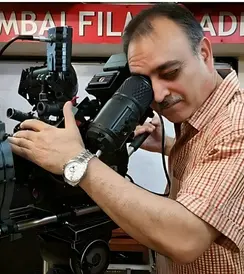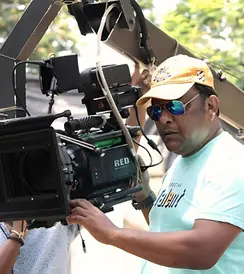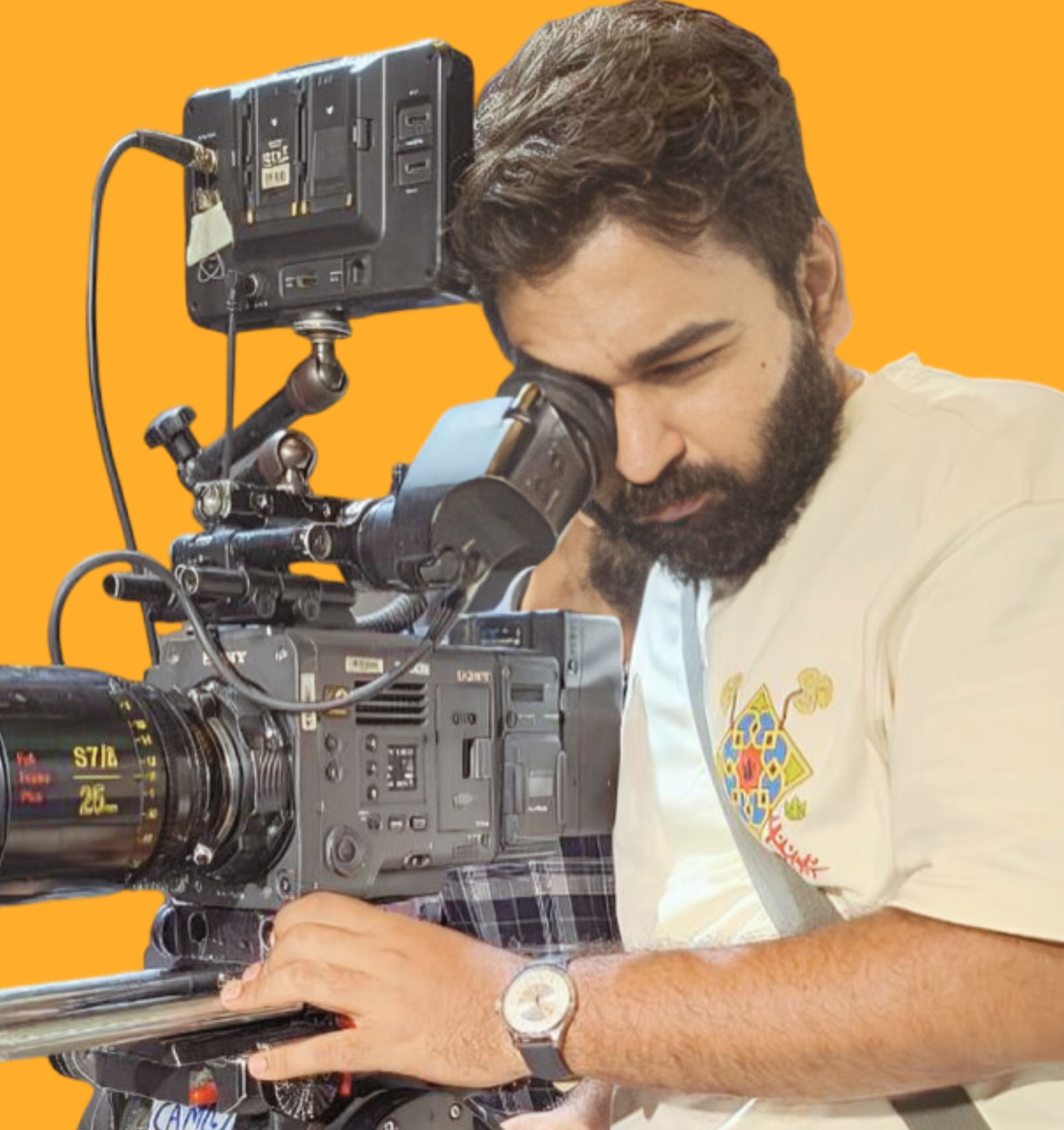First Viewer
Captain of the Ship
Handling Team
How picture moves
Principals of camera
Preparing a Script
Idea (concept),
Plot,
Story,
Screenplay,
Dialogues,
Timing a script
Preparing Budget
Showing Business possibilities
Entire process of Film Making
Film on Negative vs Video
Difference of Medium: Optical / Analog / Digital
Pre-production
Production
Post-production
Idea,
plot,
story,
screenplay,
dialogues
Premise,
characterization,
cause and effect,
Script Supervisor
handling a writer
Frame and framing composition Rule of thirds
Negative and positive space
Types of Shots & Angles
Types of Camera Movements
Understand Lighting
Handling a Cameraman
Working with DOP / Cinematographers
- Preproduction for Director
Charts
Scheduling
Shooting Script
Shot division methods
Master shot / Insert … one by one
Indoor/ Outdoor
Day / Night
Story-board
Recee sense
Audition & Casting of Actors
Selection of Actors
Shooting
Where to put camera
Power of a shot
Rules of shooting 180 degree rule of Imaginary line
Handling Actors
Handling Teams
Handling Crews
Job Responsibilities of Associate Directors
Job responsibilities of Clapper Boy
Job responsibilities of Costume AD
Job responsibilities of Pro Ad
Job responsibilities of 2nd Ad
Job responsibilities of 1st Ad
Editing sense
Power of a cut
Timing
Pace
Rhythm
Handling Editor
DI
VFX
Importance of Sound
Types of sounds
Sync and non-sync sound
Dubbing or ADR & sync-sound
Use of silence
Impact of RR
Background Score
Working with Music Director
On Composition
Lyrics
Singers
Recordist
Film genre, forms, styles
Documentary Making
Music Video Albums
Web series
Episodes
Ad-Film Making
Corporate Film Making
Tele Shopping Direction
Films are certified under 4 categories.
U (Unrestricted Public Exhibition)
U/A (Parental Guidance for children below the age of 12 years)
A (Restricted to adults)
S (Restricted to any special class of persons)
Making Short Films
Submitting Film
Screening Worldwide
National & International Film Festivals
Awards & Rewards
Pitching Producers & Financers



























































Chirag Shah